The weather here is gorgeous. There have only been two days where a cloud passed between me and the sun. Every day is in the mid 20s, with a cool breeze and low humidity. At night it remains in the 20s until midnight where it drops into the low teens. The strange this is, some of the people in the office like the AC cranked, so I need a fleece inside! And this is their winter.
Without a day off yet, I’ve only visited the nearby town only a few times. One of my visits was delivering a fellow engineer to teach a class. I decided to visit the infamous ‘Shoprite’ grocery store to see if the stories I’m told are true:
Every morning, enterprising customers collect every loaf of bread from the Shoprite bakery and purchase them each for $1. They transport the loaves to the storefront sidewalk, where they sell for $1.15. It seemed to me this practise has now caught on with toilet paper too — but I didn’t get a good look because I was slightly worried about my vehicle outside. (A local boy offered to ‘watch my car’, I declined, and decided it was better not to leave it for too long. Good thing too, as the fire extinguishers have a history of going missing when left unguarded). I went back a few days later and while purchasing some bananas noticed a huge mob of people, disregarding proper queuing etiquette as they anxiously awaited the forthcoming loaves fresh from the bakery. Ah, what a place.
Daily life working at an African mine
In order to drive in the pit here, the employees must pass a driving examination. This normally wouldn’t present any difficulties but a few special circumstances made this an interesting adventure: They drive on the left. They sit on the right. The turn signal on the steering column is on the right. The vehicles are all manual transmission (I normally drive automatic), and the gear-shifting hand is the left.I stalled the vehicle once, I drove through a stop sign, and I scored perfect.
The daily cleaning service in my room is very thorough. They clean, sweep, wash any dirty laundry in the hamper, and make the bed. Sounds pretty sweet, you say? It has its aggravations too. They often mix up clothes and my laundered boxers disappeared. It turns out my next door neighbour had been given them. Then some shoes appeared in my room, which turned out to be my neighbours’. (Yes, for some strange reason they randomly wash your shoes). Another day, their thoroughness turned into invasiveness as they went into my closed cabinet, tidied all my personal belongings, investigated my clothing and overruled my interpretation of ‘dirty’ by deciding themselves what should be laundered. This was a bit much, considering both my passport and money belt is hidden in that cabinet. Not only that, but I’m told my clothes won’t hold up very long against their rigorous washing methods – clothes would have a better chance were they washed with gravel.
Interesting Expats
There are some very interesting individuals here, such as a former Zimbabwean farmer who was forced off his land with little compensation. He had pedigree cattle he had selectively bred for 30 years, only to be slaughtered and sold. He had a $40 000 irrigation system he couldn’t sell, because nobody is buying farming equipment. Another man I spoke to had parents that escaped to England with only what they could carry.(Background: President Mugabe earmarked 95% of white-owned for redistribution to black people, many of whom had no experience or skills in farming. The country had formally been producing excess food but now relies on food aid for 1.8 million people. And very recently, contrary to all common sense, the UN appointed Zimbabwe to head the Commission on Sustainable Development).
I met another guy, a South African, describing “croc feeding” at a reservoir full of crocodiles that he found a few hours away. Him and his friends attach a leash from a stake in the ground to a live chicken’s ankle, and run back to their car and wait. The real fun began when the leash snapped and the chicken came straight towards their car with the crocodile in hot pursuit. If I get the chance to try this out, I’ll be sure to send photographs.
Hope everyone is doing well. Don’t be afraid to send me an email. Click the thumbnail above for photos!
-Mike





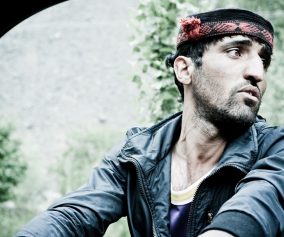
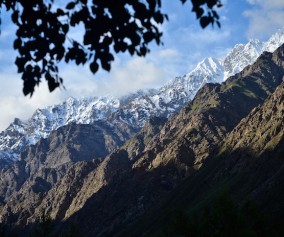


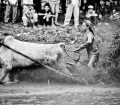


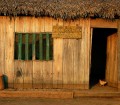
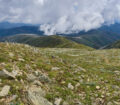





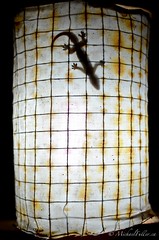

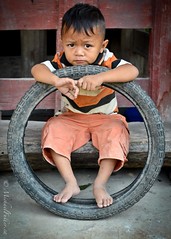
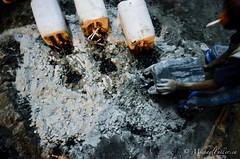
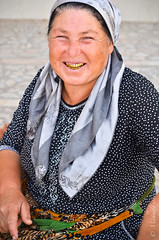

Hi Miko,
I don’t have your current email address and I couldn’t find it anywhere. Also, you weren’t on MSN when I was writing this, so this was the best way I had to contact you. You’re not home for the long weekend, are you? I figure you’re probably not, but if you are, we’re trying to put some stuff together. Let me know at j_pearson6@hotmail.com .
I hate sharpening pencils too.
hi dear,
i see you are living it up in zambia, and yay for updating blog! i would e-mail you also, but i don’t know which one you use. shoot me a line at saba.khan at gmail. stay safe :)
-saba
what is the hardest part of living in Zambia?
hi Sarah! For me I reckon it was the isolation. I lived in a remote NW area of the country, outside a very small town, at a mine. I had very little in common with the other expats there (a few of whom were not good humans), and eventually befriended a crew of Indonesian skilled labourers for evening entertainment (a few spoke basic english). Eventually I made one real lasting friend, but yeah, it was tough!